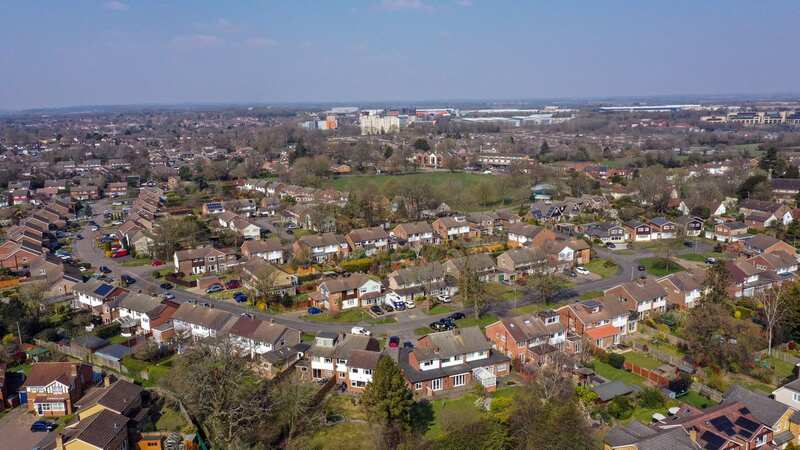Average asking price of a home in the UK jumps by more than £3,000 in a month

The average price tag on a home jumped by more than £3,000 month-on-month in February, according to Rightmove.
Across Britain, the average new seller asking price increased by 0.9% or £3,091 this month to £362,839, the property website said. The increase is in line with the seasonal rise it would expect in February.
In signs of growing market momentum, the average asking price is also up by 0.1% compared with a year earlier, following a period of annual falls in every month since August 2023. The number of sales agreed in the first six weeks of this year is also 16% higher than in the same period last year, Rightmove said.
Tim Bannister, Rightmove's director of property science, said: "Mortgage rates have fallen considerably from their peak and are now remaining broadly stable after the uncertainty of late 2022 and 2023. Momentum to move in 2024 is continuing to build, but prospective sellers mustn't get carried away.
"Buyers now have more choice of property for sale and many are still very price-sensitive, with mortgage rates remaining elevated. Sellers who are serious about moving this year would be well advised to ride this wave of increased buyer confidence with an attractive asking price before any pre-election jitters or unexpected events dampen the momentum."
 Family's 'nightmare' as £345,000 new home plagued with mould and unfinished work
Family's 'nightmare' as £345,000 new home plagued with mould and unfinished work
Rightmove has warned that properties with high prices are being ignored by buyers who are careful about how much they spend. The website's research shows that sellers who set the right price from the start are more likely to find a buyer and sell their home quicker.
Michelle Niziol, the boss at IMS Property Group in Oxfordshire said: ""It's been a positive start to the year, particularly when compared to the slower pace of this time last year. There's a sense of optimism, helped hugely by mortgage rates dropping in recent months, which now seem to have settled and remained stable, giving prospective buyers assurance and confidence.
"With lower mortgage rates on offer and more properties for sale, now is a good opportunity for any would-be buyers out there. Despite the affordability constraints, we are still seeing a good level of activity in the first-time buyer market, which is encouraging the next time buyers to review their situation and supporting movement further up the property ladder. There is a good audience of buyers out there for properties priced well, also providing opportunities for those looking to sell."
Kate Eales, the deputy head of residential at Strutt & Parker, revealed: "Activity is trending upwards compared to this time last year, which is encouraging, but the market remains price sensitive. Motivated sellers need to be realistic with listing prices and take advice on how to effectively position their sale in the current market."
Meanwhile, Jimmy Waight, the boss of sales at John D Wood & Co in London said: "We are witnessing a good start to the year in London's property market, with buyers acting earlier than usual. The surge in activity can be attributed to the decreasing and now stabilising mortgage rates, which have prompted many individuals who postponed their moves last year amid uncertainty to now re-emerge."
Property firm Hamptons say prices in the rental market are also increasing. The average rents on newly-let homes across Britain went up by 8.3% annually in January to £1,324 a month. They also told us that this was the slowest pace of growth for 13 months and it was the first time in six months that growth was in single figures.
In January, more than half (59%) of landlords who let out a home were charging more rent than they previously did. This compares to 81% in January 2022 and 79% in January 2023, Hamptons explained.
The report went on to explain that most of the rent increases during 2022 and 2023 were because of landlords of smaller homes. This suggests that demand for cheaper properties has gone up because of the increasing cost of living.
Aneisha Beveridge, the boss of research at Hamptons, explained: "Last summer looks like it may have been the high watermark for rental growth. Since then, fewer landlords have been putting up the rent. Where they have, in cash terms, monthly increases have tended to be in double rather than triple figures."
Hamptons reported there were 34% more homes on the market to rent across Britain at the end of January than a year ago. This is mainly because it's taking longer to let a property, rather than loads of new rental homes coming onto the market.
 First-time buyer transforms Victorian terrace into Instagrammable pad
First-time buyer transforms Victorian terrace into Instagrammable pad
Hamptons' index uses information from the Countrywide Group to check changes to how much renting costs. The index is based on the 90,000 homes rented and managed by Countrywide each year.
Here are the average monthly rents in January and their yearly increase in percentages and pound amounts, according to Hamptons:
London, £2,315, 8.1%, £174
East of England, £1,292, 13.1%, £149
South East, £1,407, 7.7%, £101
South West, £1,156, 5.3%, £59
Midlands, £950, 10.0%, £86
North of England, £885, 8.2%, £67
Wales, £801, 4.5%, £34
Scotland, £916, 9.9%, £82
Read more similar news:
Comments:
comments powered by Disqus

































